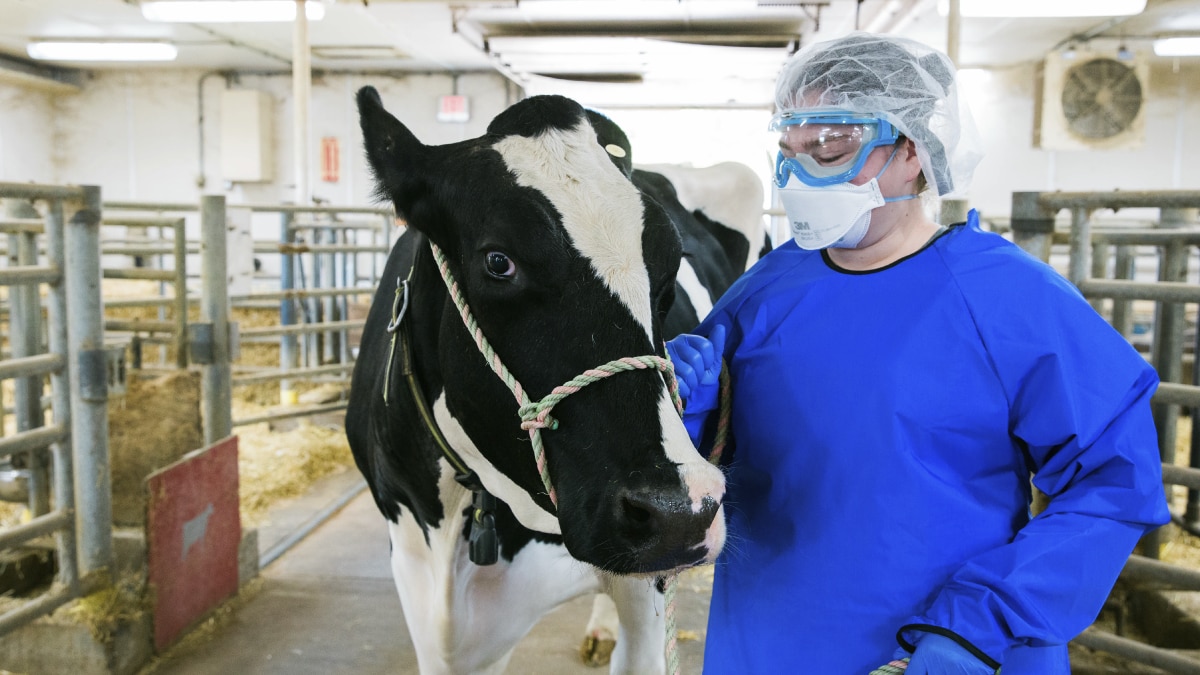Specifically it was Michigan and Colorado and the study took place between June and August
![]()
Since April 2024, sporadic infections with highly pathogenic avian influenza (HPAI) A(H5) viruses have been detected among dairy farm workers in the United States. To date, infections have mostly been detected through worker monitoring, and have been mild despite the possibility of more severe illness. During June–August 2024, CDC collaborated with the Michigan Department of Health and Human Services and the Colorado Department of Public Health and Environment to implement cross-sectional serologic surveys to ascertain the prevalence of recent infection with HPAI A(H5) virus among dairy workers. In both states, a convenience sample of persons who work in dairies was interviewed, and blood specimens were collected. Among 115 persons, eight (7%; 95% CI = 3.6%–13.1%) had serologic evidence of recent infection with A(H5) virus; all reported milking cows or cleaning the milking parlor. Among persons with serologic evidence of infection, four recalled being ill around the time cows were ill; symptoms began before or within a few days of A(H5) virus detections among cows. This finding supports the need to identify and implement strategies to prevent transmission among dairy cattle to reduce worker exposures and for education and outreach to dairy workers concerning prevention, symptoms, and where to seek medical care if the workers develop symptoms. Timely identification of infected herds can support rapid initiation of monitoring, testing, and treatment for human illness, including mild illness, among exposed dairy workers.



I meant more disease-infecting-millions-wise. As far as I understand it's far more deadly than covid
There’s no way to know for sure what kind of mutations would occur if the virus becomes human-to-human transmissible.
I’m sure some virologist could give an educated guess.
At this point isn't safe to assume it is human-human transmissible? Like we're not told about that, but there's so many infections across the country already, and there's stories of workers going home or not even being tested
Yeah I remember a few posts about the Missouri hospital case when it happened.
https://www.cdc.gov/bird-flu/spotlights/missouri-h5n1-serology-testing.html
You're right though, I don't trust they are being truthful either, which is kinda scary
It's the rapid increase in wastewater that scares me. Like it doesn't look like it's a one-time-thing from a few farms, but something that is steadily growing.
The article suggests it's not far more deadly than covid. It's only n=8 but you'd think the 1918 flu mortality rate would be evident even in those numbers.
If it's not catastrophic for adults it could certainly be circulating via human to human infection for a few months.